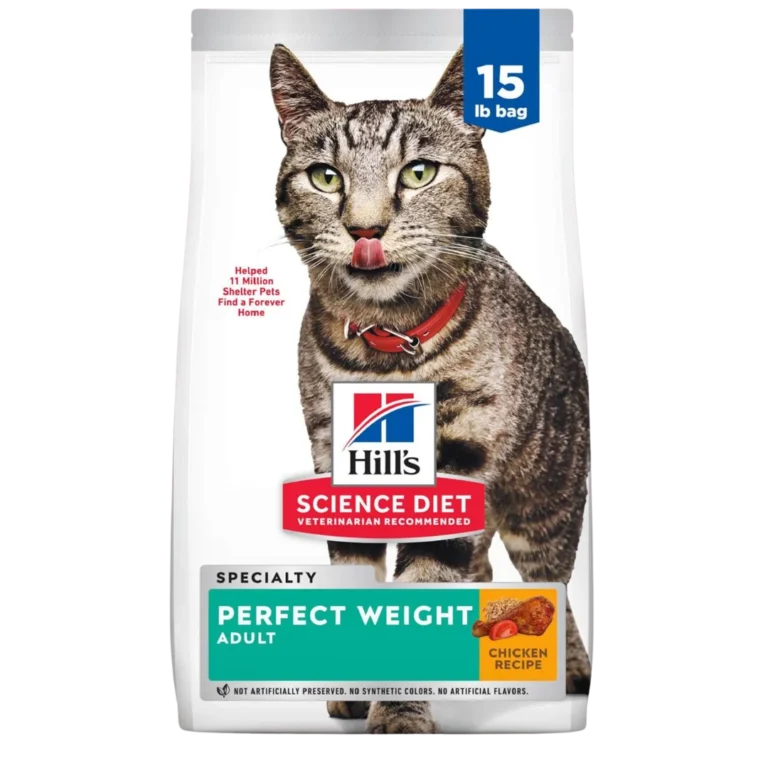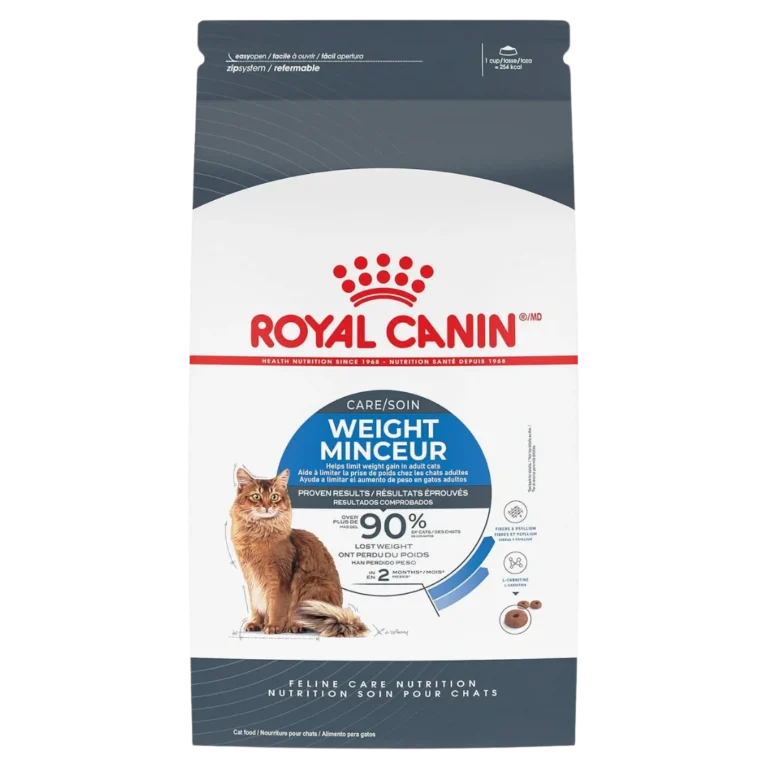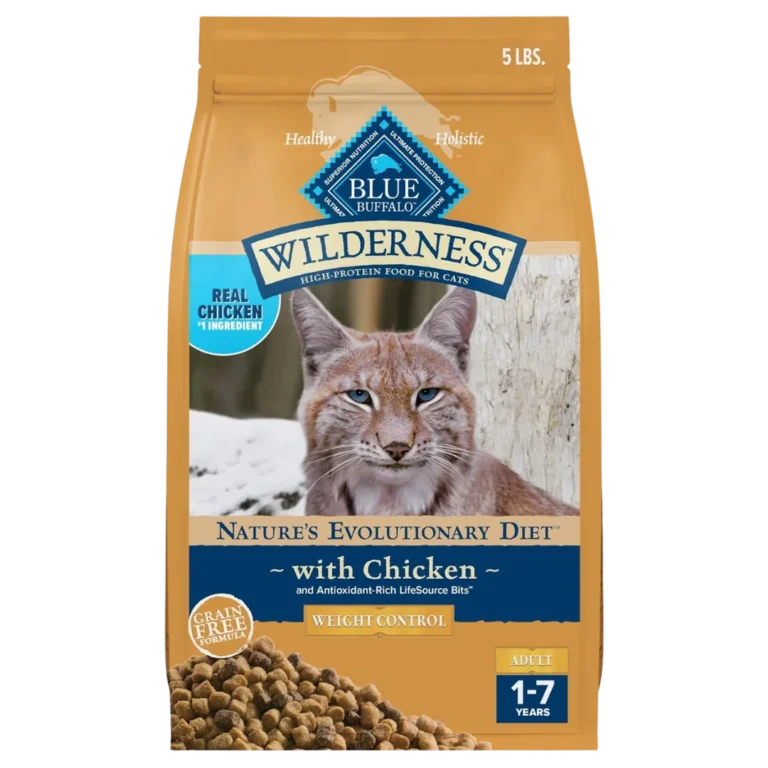The Best Cat Food for Overweight Cats: Delicious Meals for a Healthier Life
When it comes to your cat’s health, managing their weight is one of the most important aspects of their overall well-being. If your cat is overweight, it can lead to various health problems, including joint pain, diabetes, and a shortened lifespan. The best cat food for overweight cats can make a significant difference in helping your furry friend shed pounds and improve their quality of life. This guide will walk you through the causes of obesity in cats, the benefits of weight management, and how the right food can play a crucial role in their weight loss journey.
Understanding Cat Obesity
Obesity in cats is a growing concern, with many pet owners unknowingly overfeeding or under-exercising their cats. Overweight cats are at a higher risk of developing serious health conditions, so understanding the causes and consequences of obesity is essential for effective management.
Causes of Overweight in Cats
There are several reasons why your cat may become overweight, including:
- Overfeeding: Cats are often fed more food than they actually need, leading to weight gain.
- Lack of Exercise: Cats that stay indoors or are not encouraged to play and move around can become sedentary, leading to weight gain.
- Neutering/Spaying: These procedures can slow down a cat’s metabolism, making it easier for them to gain weight.
- Age: Older cats may become less active and require fewer calories, making them more prone to weight gain.
Health Risks Associated with Obesity
Obesity in cats can lead to a variety of health risks, including:
- Diabetes: Overweight cats are more likely to develop diabetes, which can lead to a lifetime of health issues.
- Joint Problems: Extra weight can strain a cat’s joints, leading to pain, arthritis, and mobility issues.
- Heart Disease: Obesity increases the risk of heart disease in cats.
- Reduced Lifespan: Obesity can shorten a cat’s life expectancy by contributing to serious health problems.
Importance of Weight Management
Managing your cat’s weight is essential for preventing and mitigating the health risks associated with obesity. Maintaining a healthy weight can:
- Improve Longevity: Cats who maintain a healthy weight tend to live longer, healthier lives.
- Reduce the Risk of Disease: Proper weight management helps prevent diseases like diabetes, arthritis, and heart disease.
- Enhance Mobility and Comfort: Cats that maintain a healthy weight are more active, playful, and comfortable.
Benefits of Maintaining a Healthy Weight
- Improved Energy Levels: Healthy weight management results in more energy, making your cat more playful and active.
- Better Joint Health: Reducing excess weight takes the strain off your cat’s joints, improving mobility and comfort.
- Overall Health: Maintaining a healthy weight promotes a better overall quality of life, with fewer visits to the vet for weight-related health issues.
How Nutrition Plays a Role in Weight Management
Nutrition plays a crucial role in helping your cat lose weight and maintain a healthy body. The best cat food for overweight cats is formulated to provide fewer calories, promote fat loss, and support overall health. Key nutrients to look for include:
- High Protein: Protein helps your cat maintain muscle mass while losing fat. Look for foods with high-quality protein sources, such as chicken, turkey, or fish.
- Low Carbohydrates: Cats are obligate carnivores and don’t need a lot of carbs in their diet. Foods with fewer carbohydrates help prevent weight gain.
- Fiber: Fiber helps your cat feel full longer, reducing overeating. It also supports digestive health.
Look for foods that are specifically formulated for weight management. These will typically have a lower calorie count, higher fiber content, and protein that helps support lean muscle mass.
For more tips on managing your cat’s food intake, you can check out How Much Cat Food Should I Feed?.
Best Cat Food for Overweight Cats
The best cat food for overweight cats combines the right balance of nutrients, including high protein, low fat, and adequate fiber. Below are some of the top options available for your cat’s weight management:
1. Hill’s Science Diet Adult Perfect Weight Chicken Recipe
Key Ingredients:
- Chicken, barley, brown rice, and oat fiber.
Why It’s Great:
- Hill’s Science Diet is formulated for weight management, containing a balanced combination of protein and fiber to help your cat feel full while shedding pounds. It’s clinically proven to help cats lose weight within 10 weeks.
Pros:
- High-quality protein, fiber-rich, supports lean muscle mass.
Cons:
- Some cats may not like the flavor.
2. Royal Canin Feline Weight Care
Key Ingredients:
- Chicken by-product meal, corn, rice.
Why It’s Great:
- Royal Canin offers a formula specifically designed for overweight adult cats. It has a reduced fat content to help with weight loss while maintaining energy levels, along with highly digestible proteins.
Pros:
- Reduces fat while maintaining muscle mass, promotes healthy digestion.
Cons:
- It can be pricier than other brands.
3. Blue Buffalo Weight Control Chicken & Brown Rice Recipe
Key Ingredients:
- Chicken, brown rice, oatmeal, peas.
Why It’s Great:
- Blue Buffalo’s weight control formula contains high-quality chicken protein and fiber-rich ingredients like brown rice and peas to help with weight loss and maintain healthy body condition.
Pros:
- Supports healthy weight loss and muscle maintenance, made with real chicken.
Cons:
- Some cats may have sensitivities to grains.
Special Considerations
Best Cat Food for Overweight Senior Cats
Senior cats often need special consideration when it comes to weight management. As they age, their metabolism slows down, and they may require fewer calories. The best food for overweight senior cats should be low in fat and rich in fiber and protein to maintain muscle mass.
Look for options like Hill’s Prescription Diet m/d or Royal Canin Feline Health Nutrition Weight Care, which cater specifically to the needs of senior cats while supporting weight loss.
For more tips on senior cat food, check out Best Food for Elderly Cats.
Best Cat Food for Overweight Indoor Cats
Indoor cats are less active than their outdoor counterparts, which can lead to weight gain. Indoor cats often require lower-calorie food to maintain a healthy weight while getting all the nutrients they need.
Look for foods like Wellness CORE Grain-Free Reduced Fat, which offer a balanced combination of protein, fiber, and healthy fats.
Tips for Transitioning to New Food
Transitioning your overweight cat to a new food should be done gradually to avoid digestive upset.
Gradual Changes:
Start by mixing a small amount of the new food with your cat’s current food. Gradually increase the proportion of new food over a 7-day period.
Monitoring Your Cat’s Weight:
Weigh your cat regularly and track their progress. Most cats will start losing weight within 2-3 weeks of starting their new diet. If you notice any drastic weight loss or gain, consult your veterinarian.
Incorporating Exercise into Their Routine:
Encourage your cat to be more active by providing interactive toys, engaging playtime, and scratching posts. Even a few minutes of play each day can help your cat burn extra calories and maintain a healthy weight.
Conclusion
Helping your cat achieve and maintain a healthy weight is essential for their overall well-being. By choosing the right cat food for overweight cats, you can support your cat in losing weight, reducing the risk of obesity-related health issues, and improving their quality of life. Whether you choose Hill’s Science Diet, Royal Canin, or Blue Buffalo, always consult your vet before making significant changes to your cat’s diet, and keep track of their progress to ensure they’re on the path to a healthier lifestyle.
For more guidance on food options and feeding your cat, visit our resources on Best Cat Foods.






